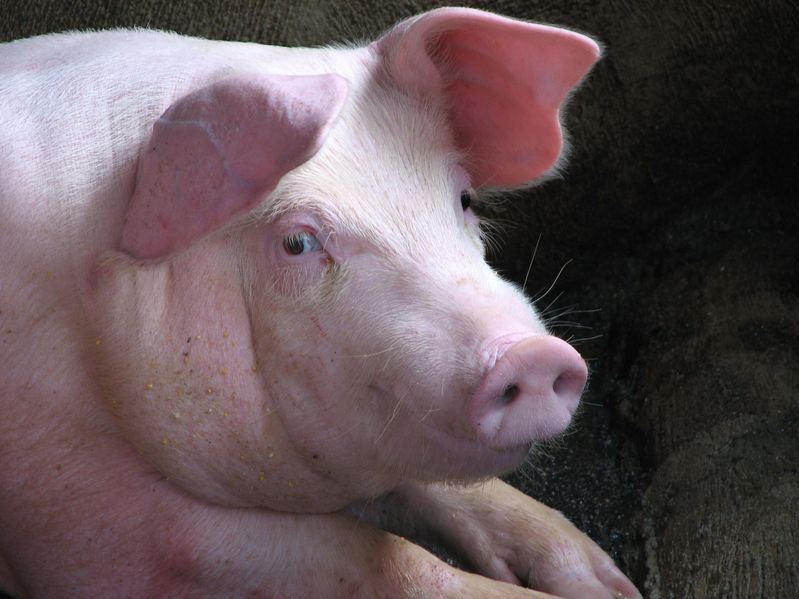
Pigmeat producer margins are under pressure despite a recent increase in prices, according to new analysis by Quality Meat Scotland (QMS).
Global farmgate prices for pig meat have performed strongly over the first quarter of this year.
Despite the recent increase, UK and European prices continue to struggle to match last year’s levels, QMS says in its latest market commentary.
Stuart Ashworth, Director of Economic Services for QMS, said that farmgate prices for the EU and UK remain 13% and 17% lower than a year ago:
“Average prices in the EU for example have increased by over 12% since the beginning of February," he said.
"In the USA and Canada farmgate prices climbed some 35% over the same period.
"Recovery in farmgate prices in GB is a more modest 2% although they remain higher than the EU average.
"Despite recent increase European and UK farmgate prices remain 13% and 17% lower than a year ago.
“Equally though, historic price trends would suggest modest seasonal increases in farmgate pig prices through the first half of the calendar year."
Amid recent rises in farmgate prices, producers are also seeing growth in feed prices; an input that accounts for over three-quarters of the cost of producing pigmeat.
Mr Ashworth said: “With cereals and oilseed meal prices some 15-20% higher than twelve months ago, the fact that farmgate prices are lower than this time last year clearly indicates lower margins for pig meat producers in Scotland."
Strong European and North American prices are being helped by continued firm demand from China with international trade heavily influenced by the presence of African Swine Fever (ASF) in national pig herds.
“It has been well documented that the impact of ASF in China has inflated their imports of pigmeat," Mr Ashworth added.
"It had been thought that China had ASF under control but recent reports from China indicate that ASF is still circulating and there has been some regional increases in incidence.
"As a consequence, China is expected to continue as a major player in international pig meat trade through out 2021,” he said.
As a result of this, the EU reported during January 2021 an increase in exports to China during 2020 of 45% although growth was a more modest 16% during January 2021.
This growth has been achieved despite several EU member states, including Germany, having cases of ASF preventing export to China.
UK trade data indicates that the UK has also benefited from increased trade with China in 2020 but were less successful during January 2021.
Mr Ashworth said: “The reasons for this decline in UK trade with China are complex but include China’s removal of export approval from some processing sites including a major site in Scotland, because of concerns over the presence of Covid among the staff of these sites.
“Not only do these Covid implications reduce market opportunities internationally for these sites they have also led to limited slaughter capacity resulting in pigs being held back on farms leading to these pigs falling out of premium specifications and suffering price penalties."
Recovering export approval is proving time consuming and geopolitical tensions over China’s treatment of the Uighar communities is an added hinderance.
This may be a contributing factor to more modest farmgate price recovery in the UK compared with EU or North America.
Mr Ashworth notes that the recent publication of December census results for Scotland and England indicates little change in pig numbers on farm compared to 2019.
“A similar profile of slaughter numbers and continued opportunities to trade with China not withstanding the current challenges and historic precedent would suggest modest growth in farmgate price will continue.
"Nevertheless, current UK prices remain 17% lower than last year matching last year’s prices in the medium term may be over ambitious,” he concluded.
